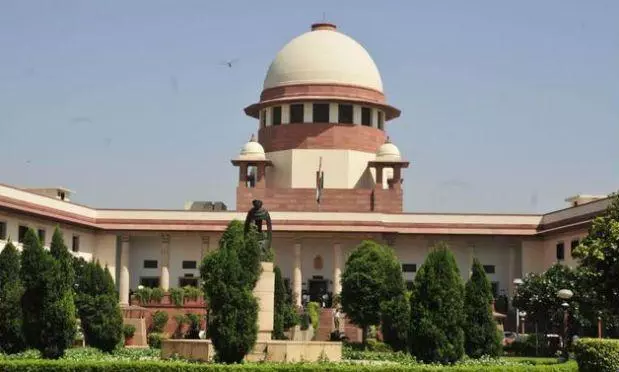
The appointment of the Director General of Police (DGP) is an important issue in which the Supreme Court has once again reminded the states of their responsibilities. It is surprising that some states seem to have chosen not to follow the landmark 2006 Prakash Singh judgment, nearly 20 years after it was delivered.
The Supreme Court recently sought clarification from Andhra Pradesh, Telangana, Uttar Pradesh, Punjab, Uttarakhand and West Bengal. These states and Jharkhand, which later responded, were accused of violating court-mandated procedures for selecting DGPs in a case brought by the Jan Seva Trust. The trust claims multiple violations of rules, including bypassing the two-year fixed tenure requirement for police chiefs and ignoring the mandate to select three senior-most qualified IPS officers from a UPSC-prepared panel.
Prakash Singh guidelines are important. The 2006 judgment was a watershed moment in protecting the police from political interference and ensuring merit-based leadership. Fixed tenure and structured selection processes are designed to promote consistency and professionalism in policing—an important factor for public trust and effective law enforcement.
However, states are dragging their feet or ignoring these directives. Although the court has now given six weeks for reply and four weeks for reply, why the delay in complying with the 17-year-old mandate? Just bureaucratic inertia, or something more deliberate?
The court’s frustration is justified. With today’s complex law and order challenges, shouldn’t states prioritize fair and transparent police leadership? After all, police reforms are not just about hierarchy – they are about justice, accountability and public trust. States that ignore these directives must answer to the nation — and quickly.
Public spats and missing files
Kerala’s bureaucracy appears to have traded its famous decorum for a public display of accusations and counter-accusations. Suspended IAS officer N. Prashant took to Facebook to make serious allegations against senior colleague A Jayathilak, alleging that his office had leaked sensitive information about missing files on initiatives for the empowerment of Scheduled Castes (SC) and Scheduled Tribes (ST).
At the center of the storm is Unnathi, a project aimed at uplifting SC/ST communities. A newspaper report, purportedly sourced from a letter written by Mr. Jayathilak to Chief Minister Pinarayi Vijayan, claims that Mr. Prashant failed to hand over important documents to his successor, K. Gopalakrishnan. Mr. Prashant, however, hit back with claims of conspiracy, accusing Mr. Jayathilak and Mr. Gopalakrishnan of tampering with the digital records.
The allegations, which include colorful references to “time travel” to change e-file dates, raise troubling questions about administrative justification. Mr. Prashanth has been accused of defying and tarnishing the image of the government, but silence on Mr. Jayathilak’s part only fuels the speculation. Meanwhile, the Chief Secretary added another layer to this bureaucratic soap opera by issuing a memo against Mr. Prashant for insulting remarks and insulting colleagues.
This very public spat underscores a growing concern: Are digital tools for efficiency now weaponized in turf wars? The IAS Officers Association’s intervention will be crucial in restoring order and ensuring that bureaucratic infighting does not overwhelm governance. Kerala certainly deserves better than senior officials indulged in virtual mudslinging when vital administrative initiatives are in the balance. What is needed is accountability, professionalism, and a reminder that public service is not about being a bully with a Twitter feud.
Ajay Seth steps into the budget crowd
Economic Affairs Secretary Ajay Seth has been given additional charge as Interim Revenue Secretary. As per the order of ACC, he will hold this dual charge until permanent appointment or until further instructions.
Mr. Seth, a 1987-batch Karnataka cadre IAS officer, is known for his steady hand in financial matters. After a BTech and MBA in Mechanical Engineering, he is heading the Department of Economic Affairs since April 2021. And now, with the Union Budget approaching, he is back in the limelight.
The vacancy arose after outgoing revenue secretary Sanjay Malhotra was appointed RBI governor earlier this week. The timing left little room for delay – budget preparations are in full tilt, and the ministry needs someone who can hit the ground running.
Fortunately, Seth is no stranger to budget discussions. Sources within the ministry pointed to his vast experience in fiscal policymaking, making him a natural fit for the role.
Of course, it’s a high-stakes moment, but Mr. Seth seems to have the chops for the challenge. With a deep understanding of the workings of the ministry, his appointment ensures that there are no hiccups in the budget process. Now the question arises – how long will he live these dual roles? Now all eyes are on him.